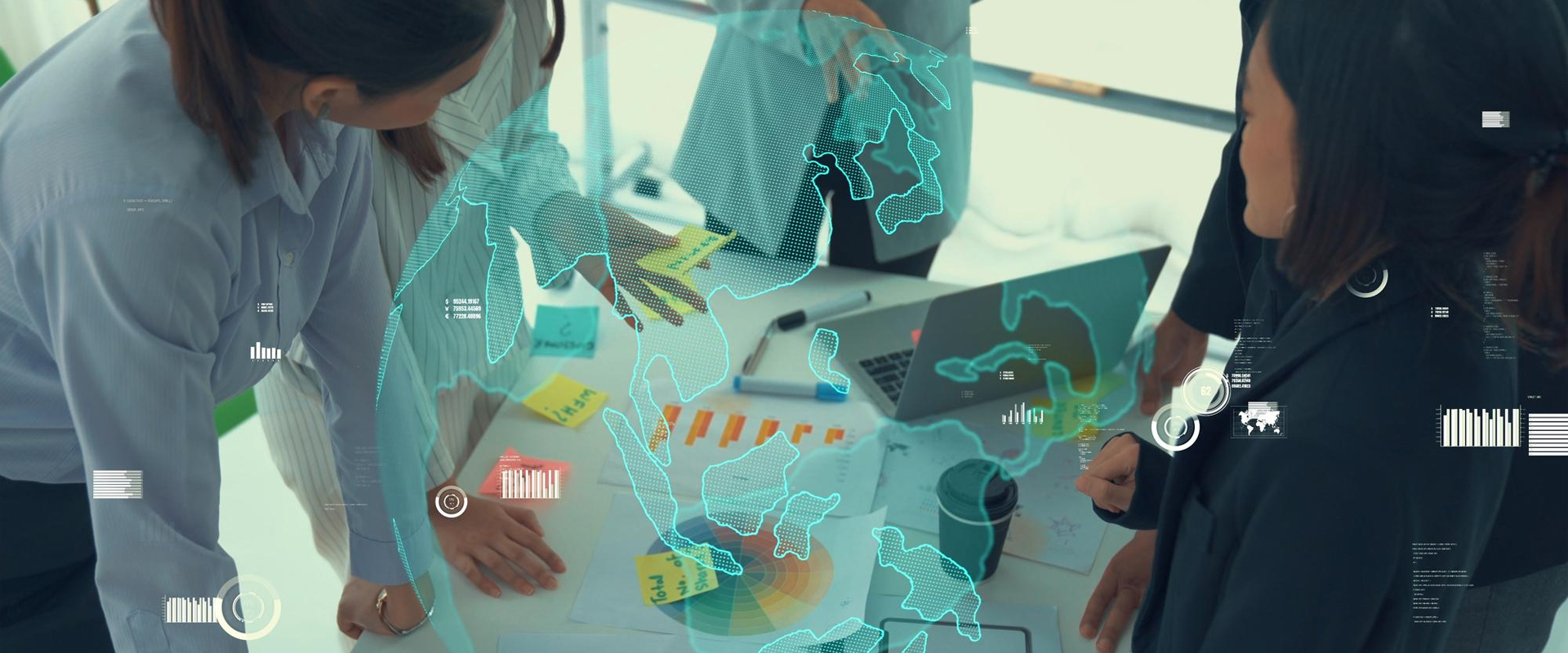

Streamlining Clinical Trial Processes with Effective Patient Care Coordination
Last Updated on July 23, 2024
Clinical trials are the engines that drive medical progress. Undeniably, they test new treatments and medications, paving the way for better healthcare. However, these trials often face a hurdle: recruiting and keeping enough participants. Unfortunately, this can slow down the entire process. However, here’s the good news: streamlined patient care coordination can be the key to smoother trials.
In this blog, we will explore how effective patient care coordination can lead to a win-win situation for everyone involved in clinical research.
The Power of Patient Care Coordination
The Symphony of Care: Coordination in Clinical Trials
Undoubtedly, clinical trials function like a complex performance. Here, researchers, patients, and caregivers all play vital roles. However, without a conductor to ensure everyone stays in sync, the results can be chaotic.
In clinical trials, patient care coordination acts as the conductor. Simply put, it’s the process of streamlining communication and collaboration, establishing a smooth flow of information.
For instance, researchers clearly communicate the trial’s goals and procedures. Meanwhile, patients receive regular updates and easy-to-understand instructions. Additionally, caregivers can effectively support patients throughout their participation.
Reduced Anxiety, Increased Satisfaction
Effective patient care coordination promotes a positive patient experience. Moreover, patient care coordination ensures a reduced level of confusion and anxiety for participants by ensuring clear communication.
Furthermore, they understand the trial’s purpose and their role within it. Moreover, consistent updates keep patients informed, promoting a sense of trust and involvement. Resultantly, this translates to increased satisfaction with the trial and a greater willingness to continue participation. Eventually, this leads to the trial’s success.
Benefits of Streamlined Coordination
Without a doubt, streamlined patient care coordination offers noteworthy benefits for everyone involved in the trials. Below, you’ll see how effective communication and support for patients lead to positive outcomes:
1. Improved Patient Experience
Happier Participants:
Usually, when patients receive regular updates on the progress and instructions about their role, they feel more informed and involved. As a result, this can significantly increase their satisfaction with the entire experience.
Reduced Anxiety:
As discussed earlier, clear communication reduces confusion and anxiety for participants. Understanding the trial’s purpose and their role within it helps them feel more comfortable and confident about their participation.
2. Enhanced Trial Efficiency
Faster Recruitment:
On the other hand, streamlined communication channels also make it easier to reach potential participants and answer their questions promptly. As a result, this can lead to faster recruitment times, allowing trials to get underway sooner.
Fewer Dropouts:
When patients feel supported and informed, they’re more likely to stay committed throughout the trial. Therefore, clear communication and addressing concerns effectively can significantly reduce dropout rates and improve retention rates.
3. Boosted Data Quality
Accurate Information:
Clear communication between researchers, patients, and caregivers ensures everyone understands the data collection process. Moreover, this reduces the risk of errors or misunderstandings, leading to more accurate data.
Complete Data Sets:
When patients understand the importance of their participation, they’re more likely to follow instructions and complete all required tasks. As a result, this contributes to a more complete data set for reliable results.
An Overall Trial Success
To sum up, streamlined patient care coordination benefits everyone involved in clinical trials. Furthermore, satisfied patients are more likely to stay enrolled, leading to faster completion times and potentially lower costs.
Additionally, high-quality data from informed participants allows researchers to draw more reliable conclusions from the trial. Ultimately, this contributes to the success of the trial and advancements in healthcare.
Challenges to Streamlined Coordination
Despite the benefits, achieving streamlined patient care coordination isn’t always easy. Below, you’ll see some common hurdles that may arise in patient care coordination:
Logistical Hurdles
Scheduling Conflicts:
Juggling appointments, work schedules, and personal commitments can be difficult for patients. Therefore, finding convenient times for everyone involved can be a challenge, leading to frustration and missed visits.
Communication Gaps
Limited Channels:
Secondly, a lack of dedicated communication channels can make it difficult for patients to reach the right person with questions. Resultantly, this can lead to confusion and feelings of being unheard, ultimately impacting their willingness to stay involved.
Impact on Patients
Without a doubt, these challenges can create frustration and dissatisfaction for patients. Simply put, missed appointments, unanswered questions, and alienated feelings can lead to dropouts, harming the overall success of the trial.
Strategies for Streamlined Coordination
Empowering Patients: Education Takes Center Stage
Clinical trials rely heavily on informed participants. Therefore, patient education programs equip participants with knowledge about:
- The trial process
- Their role within it
- What to expect throughout their involvement.
Resultantly, this empowers patients to make informed decisions about participation and feel more involved in the research.
Furthermore, a clear understanding fosters better communication with researchers and caregivers. As a result, patients are less likely to feel confused, leading to a smoother experience for everyone involved.
Dedicated Care Coordinators: A Single Point of Contact
In clinical trials, dedicated care coordinators act as a vital link between patients and the research team. Moreover, they provide personalized support, ensuring patients feel heard and valued throughout the entire process.
Furthermore, this goes beyond simply answering questions. Care coordinators actively listen to patients’ concerns, addressing them promptly and effectively. This ongoing communication builds trust and promotes a positive relationship.
Technology for Enhanced Communication
Secure messaging apps and online portals go beyond traditional methods, allowing for easy, convenient communication and information sharing.
Patients can ask questions, report symptoms, and receive updates – all in one user-friendly platform. This streamlines communication significantly, reducing the risk of missed messages or misunderstandings.
By ensuring everyone stays informed and connected throughout the trial, technology paves the way for a more positive patient experience and a smoother research process.
Improved Collaboration: Tools for Success
Effective communication isn’t just between patients and the research team. Researchers and clinical trial sites also need to collaborate seamlessly.
Imagine the efficiency of online scheduling tools and shared calendars! These tools keep everyone on the same page, reducing scheduling conflicts and ensuring timely data collection.
This streamlined approach not only minimizes frustration but also contributes to the smooth running of the entire trial, ultimately leading to faster completion times and potentially lower costs.
Minerva Research Solutions: Your Partner in Streamlined Trials
Supporting Your Success
At Minerva Research Solutions, we understand the importance of patient care coordination in clinical trials. We offer a comprehensive suite of patient recruitment services designed to streamline the recruitment and management of clinical trial participants.
Maximizing Patient Engagement and Retention
Our experienced patient care coordinators expertly guide participants through clinical trials. They pre-screen patients, address concerns, and ensure informed participation. As a result, this boosts recruitment and minimizes dropouts through retention strategies.
Effective Communication Tools
Furthermore, we develop patient outreach programs that connect you with the right participants. Moreover, this ensures you find qualified candidates for your trials.
Additionally, Minerva Research Solutions provides secure communication platforms for seamless information exchange between patients, researchers, and caregivers. As a result, this collaborative environment promotes informed participation and improves overall trial success.
In Summary
In a nutshell, streamlined patient care coordination isn’t just a nicety – it’s essential for successful clinical trials. Informed and supported patients feel more involved, leading to better data and fewer dropouts.
As a result, this benefits everyone. Moreover, researchers get reliable results faster, and ultimately, advancements in healthcare can reach those who need them most.
Contact us to learn more about implementing these strategies in your trials and ensuring a smoother, more successful journey for patients and researchers alike.





